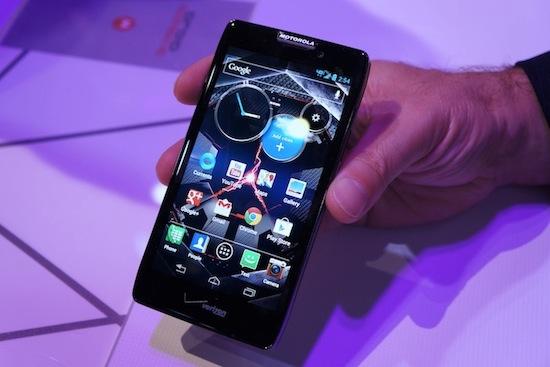
If I try hard to remember, I think the first time that I saw a regular amount of people say that the general consumer doesn't care about updates was sometime last year. Maybe way back at the beginning of 2011. It could have been earlier than that. It probably was. It doesn't really matter when it was, just that it was said.
There was a point back then that I would have disagreed. I would have disagreed simply because I know a lot of "general consumers" who want new software. Whether it's for their computer, or their camera, or whatever other gadget has some kind of functional upgradeable operating system, they want to make sure that they're on the latest version of it.
Not simply because it means having the latest and greatest (not always, anyway), but because being on the latest software usually indicates that the company behind the software is still trying to improve it and protect it, from whatever's out there that might harm it.
A lot of people compare the updates we get on our phones to the updates that we see from computer manufacturers. Both Microsoft and Apple release free minor updates to their platforms, Windows and Mac OS X respectively, for free. However, both companies charge for the major upgrades. If you're on Windows 7 and want to upgrade to Windows 8, it'll cost you. The same goes for upgrading to Mountain Lion from Lion.
I've asked in the past if you'd be willing to pay for software upgrades for your phone, and many of you would. Which makes sense.
So, riddle me this. If the general consumer doesn't care about software updates, why are manufacturers putting *any* thought into upgrading their devices? Serious question. Unless the update is vital to the device's existence, meaning it patches something in the software that is essentially broken and needs to be fixed, why are manufacturers even *trying* to keep up with the latest software?
Is it because the "tech people," the people that are apparently outside the general consumer line for whatever reason, care about it that much? Or, is it because sites like PhoneDog run stories about software versions, and point out in some instances where a certain device might be launching with outdated software?
Or, is it because manufacturers point out that they're launching with outdated software, and then make empty promises about upgrading it?
They're empty promises because there's no way to know for sure that it will come true. In fact, sometimes (more often than not?) it just doesn't happen at all.
Let's look at the DROID RAZR HD and DROID RAZR MAXX HD. Motorola announced these two devices, and said that they're running Android 4.0 Ice Cream Sandwich out of the box. *However*, they will be upgraded to Android 4.1 Jelly Bean sometime before the end of 2012. An empty promise, *especially* based on Motorola's track record.
Why put yourself into that position? It doesn't make any sense to me. You are setting yourself up for disappointment from the consumer. Why? Because you honestly have *no idea* if you can get that update out before the end of 2012. And, honestly, that's all that matters to the consumer now. To me, who is a consumer as well as a "tech person." Now that you've told me the phone is going to get updated, and you've even given me a timeline, that's all that matters. That's what I'm going to be looking forward to when I buy the phone.
Stop it. Stop caring about updates. In fact, stop talking about them entirely. For you, manufacturer, honestly, they shouldn't matter. You showcase your new device based on its own merits, talk about how great it is with the software it is *currently running*, and then people buy it. There, you've done your job. Now, just make sure that software keeps running properly, is patched when it needs to be patched, and make sure that all the features are still functioning the way they're supposed to be from launch date forward.
Anyone who watched, listened, or read about the DROID RAZR HD and DROID RAZR MAXX HD event also knows that the devices are supposed to get Android 4.1 Jelly Bean by the end of 2012. Motorola, and any other manufacturer out there who decides to go this route with showcasing a new device (I'm looking squarely at you, HTC), is just setting itself up for failure and a backlash from, well, everyone.
Your phone isn't entitled to an update. It isn't. You buy it based on the specifications of the device at the time. It is not Samsung's, HTC's, LG's, or any other manufacturer's problem that Google releases new software regularly. The only time your phone *is* entitled to an update? When the manufacturer announces it and says it's going to get upgraded. When that happens, then yes, if you buy the phone you have every right to be upset that your phone isn't upgraded in the timeframe provided for you, if ever.
Let me be clear, though. I think, without a doubt, that if a device is fully capable of running the newest version of a piece of software, the next major update, then there is absolutely no reason that the manufacturer should not upgrade a previously released device. However, I don't necessarily think that upgrade has to be free. If it is, then that's just a huge bonus and the manufacturer deserves a cookie. Software upgrades are a way of thanking consumers for buying a product, I believe, especially when it comes to Android. "Thank you for buying our device. Here's new software to keep you in love with it." Maybe I'm off base here.
Do you own a phone right now that was promised an update, but never received it? Did you buy a phone only because of a promised update? Which one, and was it updated in time? Let me know, Dear Reader.